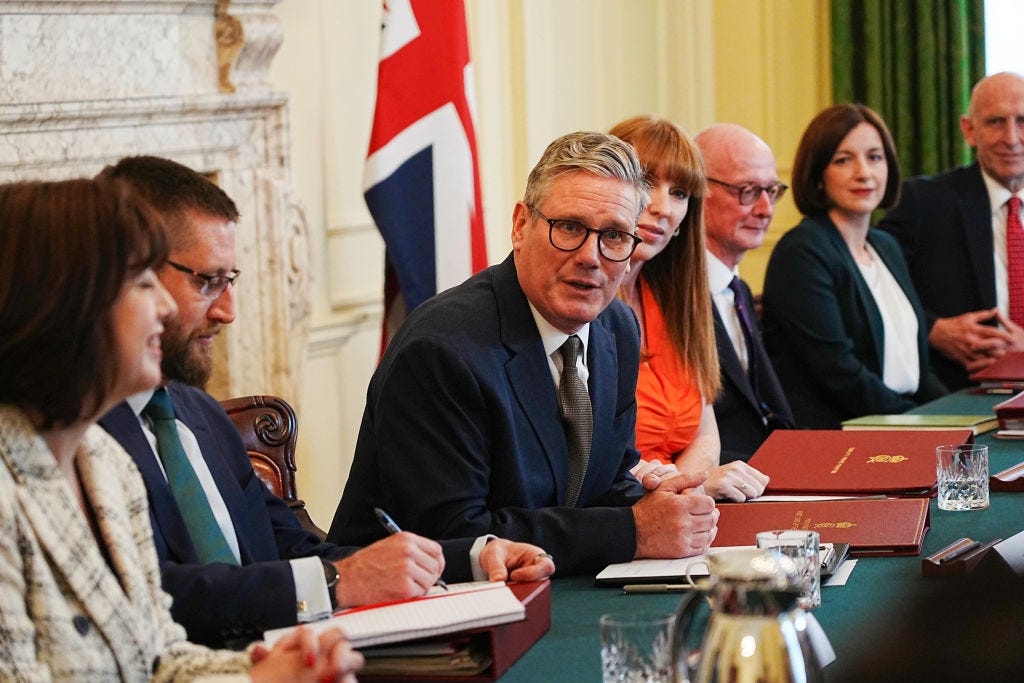Labour and the challenge of coherence
Or why it's hard to govern "unburdened by doctrine"
There is a deep sense of frustration on the centre-left and within the Labour party itself at their progress so far in government. No one ever thought it would be easy, given the fiscal context, global tensions and shambolic state of public services. Trump’s victory has made a poor hand even harder to play.
But they didn’t think it would be this hard. That frustration was explicit in Keir Starmer’s pre-Christmas speech complaining about the British state’s willingness to wallow in the “tepid bath of managed decline”. SPADs and ministers are learning, like many before them, that the levers they’re allowed to pull often aren’t connected to anything.
At the same time there’s frustration from senior officials and advisers that a lack of direction from Starmer makes it even harder to work this creaky machine. As I’ve noted before he doesn’t enjoy discussions about abstract philosophy or strategy; preferring concrete decisions on specific questions. In his first speech outside No. 10 he spoke of leading a government “unburdened by doctrine”. And, especially after the last decade or so, there’s a superficial attractiveness to a managerial leadership that isn’t demanding everything passes a rigid ideological test.
But you can’t run a country without some kind of guiding philosophy. The prime minister doesn’t have the time to be involved in every decision, which makes having clearly defined principles extremely important. They allow those around the PM to make decisions on his behalf confident that he will support them. Without that there simply isn’t the capacity for the centre of government to function.
This doesn’t mean that Labour isn’t doing anything. The issue is that all the considerable activity going on across government lacks coherence because it’s overly dependent on the approach of each secretary of state. This leads to contradictions or unresolved disagreements that create further confusion, and also to the misallocation of resources due to a lack of central strategy.
Starmer’s “milestones”, announced in that pre-Christmas speech, give some sense of priorities, even if they’re more a list than a strategy, but don’t bear that much resemblance to what’s actually happening in many departments. To take one example the “opportunity milestone” is about early years education but just before Christmas the Department of Education published a bill that is almost entirely about schools. It involves some quite substantial changes in policy, including rolling back academy freedoms, that seem disconnected from anything else the government is doing, and are in apparent contradiction to proposals for more choice and contestability in health reforms.1
All of this also makes it harder for those trying to influence, or just understand, government from the outside to parse what’s going on. So in the rest of this post I’m going to tease out the different strands of philosophy within Labour, identify the key contradictions and trade-offs that are currently unresolved, and finish with some thoughts on how things might play out.
Keep reading with a 7-day free trial
Subscribe to Comment is Freed to keep reading this post and get 7 days of free access to the full post archives.


